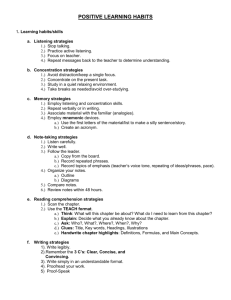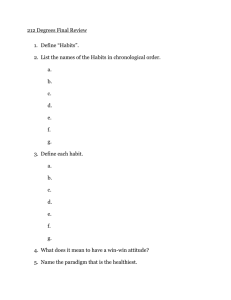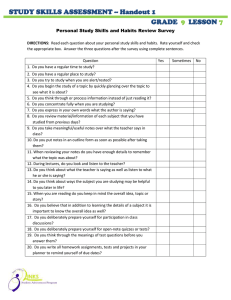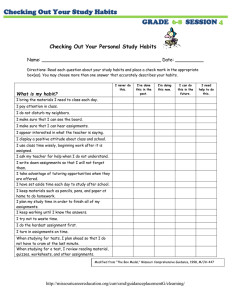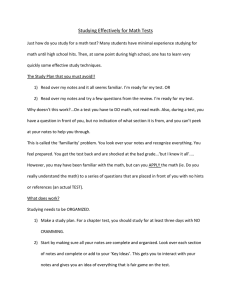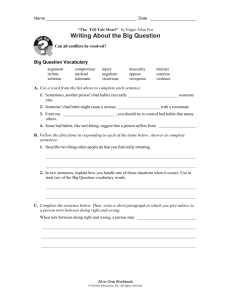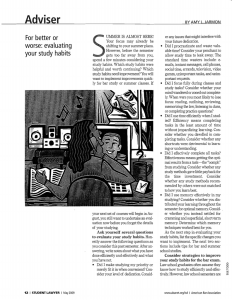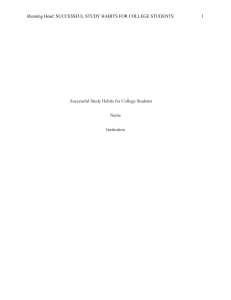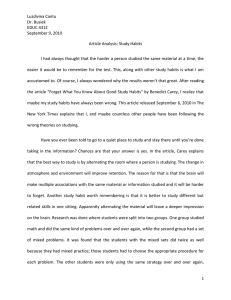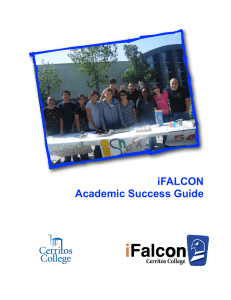Study Skills
advertisement
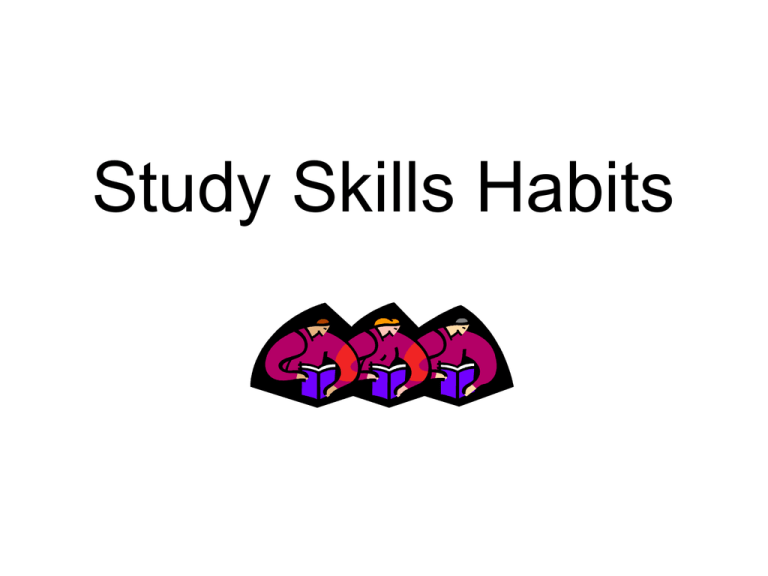
Study Skills Habits Effective Study Skills/Habits a.) Keep a course notebook. b.) Clearly understand the assignment and follow instructions. c.) Keep assignments up to date. d.) Schedule a time and place to study. e.) Don’t procrastinate. f.) Study in short segments instead of “cramming”. g.) Complete hard assignments first. h.) Participate in class activities/discussions. Poor Study Habits a.) Completing easiest assignments first b.) Studying around loud noise/distraction c.) Studying in a cluttered environment d.) Letting your thoughts wander e.) Studying when tired or hungry f.) Failing to reflect on the meaning of the assignment g.) Staying up late to study h.) Cramming Test Taking Strategies General Test Preparation Strategies • Stay healthy and well-rested (Remember Maslow’s Hierarchy.). • Avoid over-studying. • Develop a plan of action. Test Taking Strategies 1.) Relax during test administration.. 2.) Glance over the test; number of questions, format, points per question/section, etc. 3.) Read instructions completely. 4.) Answer the easiest questions first 5.) Eliminate answers. 6.) Go with your first guess. 7.) Check answers before turning the test in. Writing Strategies – Write legibly. – Remember the 3 C’s: Clear, Concise, and Convincing. – Write simply in an understandable format. – Proofread your work. Reading Comprehension Strategies – Scan the chapter – Use the TEACH format. » Think: What will this chapter be about? What do I need to learn from this chapter? » Explain: Decide what you already know about the chapter. » Ask: Who?, What?, Where?, When?, What? » Clues: Title, Key words, Headings, Illustrations » Handwrite chapter highlights: Definitions, Formulas, Main Concepts Note-taking Strategies – Listen carefully. – Write well. – Follow the leader. » Copy from the board. » Record repeated phrases. » Record topics of emphasis (teacher’s voice tone, repeating of ideas/phrases, pace). – Organize your notes. » Outline » Diagram – Compare notes. – Review notes within 48 hours. Memory Strategies – Employ listening and concentration skills. – Repeat verbally or in writing. – Associate material with the familiar (analogies). – Employ mnemonic devices. » Use the first letters of the material/list to make a silly sentence/story. » Create an acronym. Concentration Strategies – Avoid distraction keep a single focus. – Concentrate on the present task. – Study in a quiet relaxing environment. – Take breaks as needed/avoid over-studying. Listening Strategies – Stop talking. – Practice active listening. – Focus on teacher. – Repeat messages back to the teacher to determine understanding. Evaluation of Personal Study Habits/Test Taking Strategies • Identification of current practices/habits • Identification of current academic performance level (progress reports, report card, transcript) • Identification of effective/ineffective strategies • Determination of areas for improvement Development of Personal Learning Plan Components: – Location – Time – Goals – Strategies a. Overall b. Course specific
